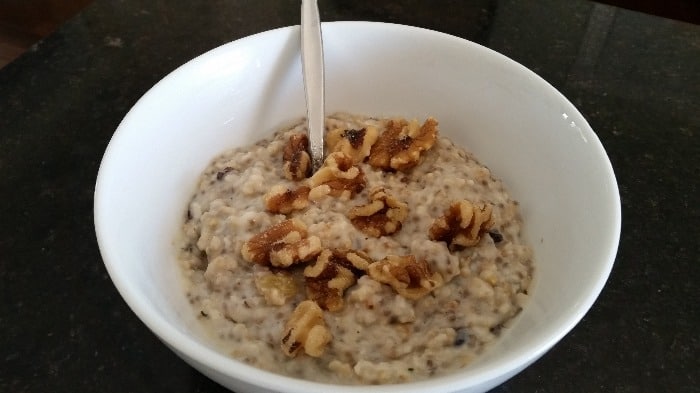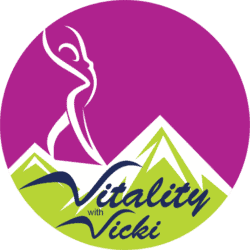
Have you been trying to figure out how to achieve a healthier body but not making much progress? From my own observations, people tend to look to exercise as the one way to reach that goal. But in my experience and research, I’ve learned the best way to get a healthier body is to first change your diet.
Exercise is necessary for keeping your body limber and your muscles and heart strong. But it won’t make you healthier if you’re fueling it with a poor diet. The nutrients you feed your body are what give you the energy and motivation to make other healthy choices. Including exercising and taking care of your mental health.
The most prevalent diseases we have in the U.S. today are mainly caused by poor dietary choices. The biggest killer of Americans is heart disease. On average about 655,000 Americans die yearly from some type of cardiovascular disease. Cancer is the second leading cause of death with over 606,000 people expected to die in 2020 alone from various forms of it.
So if you want to avoid the biggest diseases in our country and have the healthy body you want then I suggest you change your diet first. Just like your car won’t run without the right fuel, your body won’t run without the right nutrients. If you give your body what it needs it’ll perform much better for you and last longer.
But how do you even begin to change your diet? Let me show you the way!
Educate yourself first
In order to change your diet to start eating and feeling better, you first need to educate yourself. And my number one suggestion for how to do that is to start reading labels on all the foods you purchase. You won’t understand them completely at first but over time you’ll learn what to look for and what to avoid.
An even smarter choice is to cut down on foods with labels! The foods without labels are natural and they’re always best for our health. Only foods that come in packages, boxes or cans need labels because they’ve been “processed”, or made in a factory. But when you do eat these foods (and we all do), reading labels will help you choose better options.
A good example of this is canned soups. By reading labels I can cut the sodium content down by over half. I won’t buy the soups anymore that have over 1000 mg of sodium! I try to stay under 500 mg. You can come up with your own standard but the only way to do that is to know what’s in them. Check out this great article on low-sodium soup options you can try!
Did you know that our desire for sodium intake is acquired? It’s a little like a drug…the more we have of it the more we want it! If you give yourself some time off of it your taste for natural foods will come back and you’ll enjoy them more!
Books to help you to change your diet
Another great way to educate yourself so you can change your diet is by reading books or articles. Dr. Dean Ornish is all about preventing or reversing heart disease. He’s performed many years of clinical trials showing that you can take control of your heart health by eating a whole food plant-based diet.
The research done by Dr. Ornish has led Medicare and many health insurance companies to pay for the cost of his “lifestyle medicine program”. That’s impressive when you can convince the government and insurance companies to back you!
His latest book “Undo it! How simple lifestyle changes can reverse most chronic diseases” will teach you how to eat and live your life in a much healthier way. Instead of reading the latest fads read what the experts that are doing the research have to say!
One of the first books I read on nutrition and cancer was “The China Study” by T. Colin Campbell and his son Thomas M. Campbell. It’s not exactly an easy read since it’s full of statistics, charts, and studies but it’s also not hard to understand. This book will explain exactly why a plant-based diet helps lower your risk of cancer, and how they know.
Take control of your health
What you’ll learn from these doctors is that you have a lot more control over your health and disease prevention than you may have thought. Decades of research have made it very clear that “plant-based diets are the only dietary pattern to have shown reversal of CHD (coronary heart disease)”.
The authors of The China Study drive the point home that a plant-based diet can also greatly lower your risk of all cancers. Of all the things you have no control over, your diet isn’t one of them. In fact, Harvard Health Publishing writes that “less than 30% of a person’s lifetime risk of getting cancer results from uncontrollable factors”.
This doesn’t mean you have to become a Vegan, but it does mean you have to start down the path of cutting back on animal products and focusing more on whole plant foods. And that’s not as hard as you might think. Cancer.net has a great article explaining what to eat and avoid eating to lower your risk of cancer.
The same plant-based diets recommended by Ornish and Campbell have been shown to lower your risk of obesity. And obesity is a risk factor for both heart disease and cancer. So not only will changing your diet help you to lose weight, it will also help to lower your risk of these serious diseases and others.
It’s all about baby steps!
Is it easy to completely change your eating habits? Not if you try to do it all at once! But if you take baby steps then you can make that process of change much smoother. If you want to change your diet to be healthier then my suggestion is to start with what you’re drinking on a daily basis.
I cut out soda many years ago and I don’t miss it at all. I didn’t think I needed the sugar in soda, and as far as diet soda goes, I didn’t get the point. They may not have the sugar, but ALL the other ingredients in them are unhealthy. The food coloring alone is actually carcinogenic (cancer-causing).
Related article: Body Shaming: A different perspective.
I’ve also known people who gave up soda and lost a substantial amount of weight without doing anything else. The same goes for juice, sweet teas, or those great flavored coffees from Starbucks! Total up the calories you’re taking in by drinking these items daily and then decide if they’re worth it.
So let your first baby step be to take a month to conquer the sweet drinks and find healthier ones to consume that might actually benefit your body. To change one habit you need to find a new one to replace it with. You won’t feel deprived if you find a better option that makes you feel good about drinking it!
By taking these baby steps, changing one aspect of your diet at a time, the changes are much more likely to stick.
Related article: What to drink (and not drink) for better health.
Upgrade each meal
The next logical step you can take to change your diet is to upgrade each meal, starting with breakfast. Do you eat a Pop-Tart every morning, a bagel and cream cheese, or boxed cereals? Have you thought about whether you’re getting any real nutrition, or lasting energy, from those choices?
Foods like those contain little natural fiber and as soon as you eat them they turn to sugar in your blood fairly quickly. So you’ll get a quick sugar high and burst of energy shortly after eating them then you’ll have a sugar crash and want more to eat! And the only real nutrients you’ll get from them have been added, or “fortified”, like a supplement.
Better choices
So what would be a better choice? You could start by experimenting with different types of oatmeal recipes. There are so many benefits to eating oatmeal, and so many easy recipes you can find these days on the internet. And I’m talking about old-fashioned oats, not the quick-cook oats, or the pre-made microwavable containers!
I eat oatmeal every morning and it takes me less than 10 minutes to cook it. Oats are a great source of healthy carbs, but also fiber, protein, iron, Vit B6, magnesium, potassium and calcium. Of course, plain oatmeal is very bland. It’s what you add to it that makes it so great! Fresh or dried fruits, nuts or nut butters, and anything else you can think of to add flavor and sweetness.
If you’re not a big eater in the mornings then consider a smoothie instead. Smoothies are a great way to add leafy greens and a variety of fruits to your diet without even realizing they’re there. That’s how I get more fruits into my husband’s diet that he wouldn’t otherwise eat! I also use it as a vehicle for chia and flaxseeds, along with some other added nutrients.
Take a month to research and find something you like for your breakfast that will give you more nutrients for better health. We’re not kids anymore, we need to change our diets as we age so we have the energy to live better.
Related article: Tips for a healthier diet: #3 Eat breakfast daily.
Lunch and snacks
Once you’ve figured all that out, move on to your lunch and snack choices, and just keep upgrading each meal of your day ending with supper. Supper seems to be the hardest one since you’re often feeding other people. Just change one thing at a time until you’ve made a complete overhaul of your diet.
Think about adding at least one vegetable and one fruit to every meal. You could also substitute a fruit for dessert at lunch! This would be a great way to cut down on refined sugar and flour while adding more nutrients to your diet.
Don’t think in terms of “what can’t I have”, but instead “what can I add to my diet to give me a healthier body”! It’s a mindset change more than anything.
Eventually, you’ll realize that you’re not depriving yourself by eating better. Instead, you’re making your health a priority by giving your body what it needs to thrive so you can live with vitality!
My final thoughts
If you want a healthier body that feels and looks good then you will have to change your diet to get it. And that means changing the way you think about food. Think of it in terms of discovering new things to love eating! As we get older we should get smarter and learn to like a bigger variety of foods.
Change just one aspect of your diet every month or so starting with drinks, then breakfasts, then lunches, snacks and finally suppers. Try a new fruit or veggie every week and eat them in different ways. A raw veggie can be very different from cooked and you never know how you may enjoy it the most.
I look forward to eating raw veggies every day mainly because I love the hummus that I make to go with them! But I’m sure I would’ve thought that was crazy at the age of 20! Now it’s just normal.
Remember that whole fruits and vegetables contain fiber which most Americans are seriously lacking, while meat has none. They also don’t have any cholesterol and little, if any, saturated fat. But you will get lots of vitamins, minerals, and phytonutrients to help protect you from diseases.
Whole foods are also lower in calories than meat and most of the packaged foods we’ve come to rely on. So if weight is an issue, as it is for more than 70% of Americans, then eating more plants will help you lose a few pounds while getting healthier.
Being healthy is about feeling good and having a good quality of life for as long as possible. If you read it, the research shows that if you change your diet to fill up on more plants and natural foods you’re more likely to achieve that goal!
Let me know in the comments below if you’ve already changed part or all of your diet and how you did it! I would love to know if anyone has any other helpful strategies.

